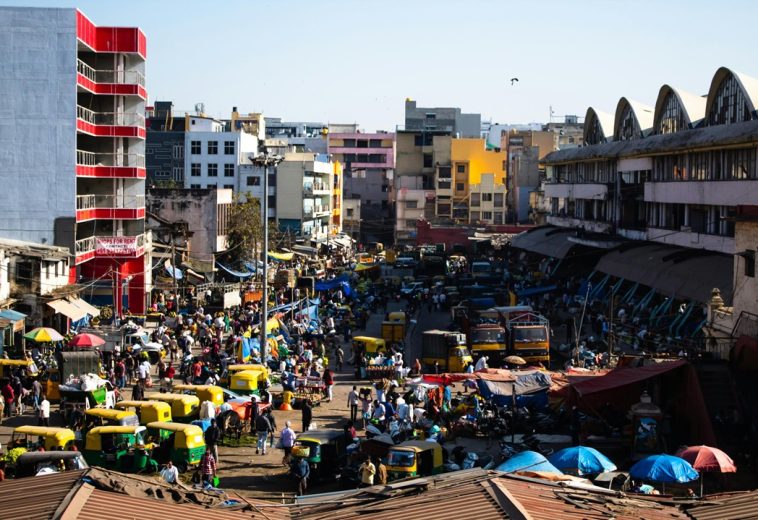Economic diversification is the latest buzzword in Africa’s development discourse, a shiny new banner under which policymakers, international financial institutions, and private sector actors march in purported unison. Nigeria, South Africa, and Egypt—three economic heavyweights of the continent—have all announced ambitious blueprints to unshackle themselves from overreliance on a few dominant sectors. Yet, as history has repeatedly shown, economic reform in Africa is never just about economics; it is, first and foremost, a political act, laden with contestations over power, resources, and legitimacy.
Nigeria
Nigeria’s recent diversification drive under President Bola Tinubu is a study in paradox: a nation that has flirted with economic transformation for decades but remains tethered to oil as both lifeline and liability. Tinubu’s reforms—most notably the removal of fuel subsidies—signal an ideological shift, but do they represent genuine structural transformation or yet another elite-driven adjustment?
READ ALSO: Power Supply and Economic Growth in Africa: A Critical Link
Agriculture has been championed as a key diversification area, with mechanisation efforts receiving state backing. Yet, rural insecurity, poor transport networks, and policy inconsistency continue to impede large-scale agricultural industrialisation.
Technology and Innovation receive enthusiastic rhetorical endorsement, but the digital divide and regulatory bottlenecks stifle broad-based growth.
Infrastructure Development, a recurring promise in Nigeria’s political lexicon, remains constrained by corruption and procurement inefficiencies.
Nigeria’s perennial challenge is not a lack of diversification policies but an entrenched elite culture that ensures economic benefits remain concentrated in the hands of a few. Unless governance reforms accompany economic restructuring, diversification may remain a mirage—an elegant policy blueprint with little practical impact.
South Africa
Unlike Nigeria, South Africa boasts a relatively diversified economy. The challenge, however, is not diversification per se but the widening economic chasm between a privileged elite and an increasingly disenfranchised majority. Under Cyril Ramaphosa, the government has emphasised infrastructure investment, innovation, and manufacturing expansion, yet systemic challenges persist:
The R1 trillion infrastructure drive is a laudable commitment, but given South Africa’s history of state capture, will these funds reach their intended targets?
The Presidential Economic Advisory Council suggests a move towards evidence-based policy, but implementation remains the Achilles’ heel of South African governance.
Manufacturing revival is constrained by labour disputes, power shortages (read: Eskom’s perpetual woes), and a fragile investment climate.
South Africa’s economic struggles are as much about political governance as they are about economic structure. The shadow of apartheid-era inequalities looms large, and without addressing deep-seated social and economic exclusions, diversification will remain an elite-driven project with limited mass impact.
Egypt
Egypt, under President Abdel Fattah el-Sisi, offers a different approach to diversification—one anchored in a state-capitalist model that aggressively pursues infrastructure megaprojects, tourism expansion, and renewable energy investments. However, behind these grand plans lie fundamental questions about economic governance:
The Suez Canal expansion exemplifies Egypt’s strategy of leveraging its geographic advantage, but how sustainable is this in a global trade landscape increasingly shaped by geopolitical disruptions?
Vision 2030, Egypt’s roadmap for economic transformation, is bold in ambition but constrained by reliance on tourism and external loans.
The role of the military-industrial complex in Egypt’s economy remains an underexplored factor, raising concerns about transparency and private sector competitiveness.
While Egypt presents an impressive economic modernisation narrative, the state’s heavy-handed control over key industries raises doubts about long-term sustainability. True diversification demands a vibrant, independent private sector—something Egypt’s political structure does not easily accommodate.
Comparing these three cases reveals that economic diversification in Africa is not simply about sectoral shifts—it is fundamentally about political will, governance frameworks, and social inclusivity. Some key takeaways:
Political commitment matters: Long-term diversification cannot be driven by political expediency or short-term electoral considerations.
Governance structures determine success: Without mechanisms to ensure transparency, accountability, and efficiency, even the best policies will flounder.
Economic diversification is social transformation: Failing to address inequalities and exclusion will render diversification efforts unsustainable.
Ultimately, economic diversification in Africa will not succeed merely by changing what is produced; it must also transform how power and wealth are distributed. Until this reality is acknowledged, Africa’s economic future will remain precariously tied to its past.




